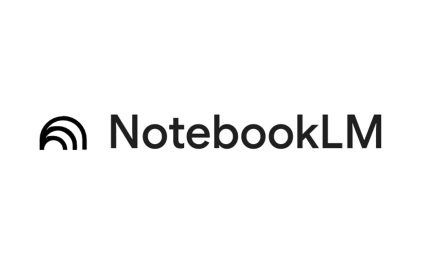Sam Altman and Sundar Pichai are about to go head to head in AI Search in late 2024 and 2025.
🎧 Tl;dr? Try the Audio Version. 8:35 duration.
Welcome Back,
It’s Friday May 17th, 2024.
Who do you think will contribute more value to the future of AI, between OpenAI and Google?
🎧 Audio Intro: 3:12: Tl;lh (too long, listen here).
Introduction
As I cover AI news at the intersection of business, innovation and also BigTech, we still need to cover GPT-4o and Google I/O in more detail.
So far we have covered them here and here. This will be the 2nd article in our series taking a closer look at Google’s AI ecosystem after I/O. Disclaimer, some of their product announcement are clearly mere prototypes.
OpenAI’s omnimodal voice assistant is very polished. You can share your thoughts on our latest AI CHAT.
🥑 Support and Dive Deeper
Support my work for as little as $2 a week. Get access to deep dives and AI related report summaries. 🎓📚💡
OpenAI and Google each held major events this week announcing AI updates, one day apart. It’s a valid criticism that I think that many of Google I/O’s video demos are more like prototypes, while GPT-4o and a Web App for OpenAI are more polished and accessible products.
What makes debating the OpenAI vs. the Google I/O events so amusing, is it appears like they will battle it out for the future of Search. One thing is clear, OpenAI’s voice assistant seems a lot more useful than Project Astra. However Google’s range of AI products are much more interesting as an ecosystem and amazing things like LearnLM Google appears ahead of OpenAI in terms of realizing an Ed-Tech spinout around Generative AI.
With new kinds of Search experiences coming, namely Google AI Overviews and more SGE, this a prelude to what OpenAI will release, and what Perplexity might be able to become, might mean a shift in consumer behavior around web and mobile Search that changes the internet forever.
Summer of 2024 is an Exciting time in Search & AI
Google is rolling out AI-generated overviews to US search results.
Search will offer multi-step reasoning for complex questions and queries.
SGE or Search Generative Experience, will become more mainstream in 2025 and 2026.
OpenAI will release their own Web-search product in their omnimodal app and desktop app later in 2024.
I asked , to dive deeper into Google I/O for us with visual infographics. She was recently named one of the top AI Newsletters for Researchers.
Also mentioned were , , and others.
If you are interested in Alex Irina’s consulting services and market research talents, go here.
I’m a huge fan of independent consultants who have stellar Newsletters for market research to drive them leads, such as as well with her ApertureChina.
My Featured Peer Newsletters
🎯 The Strategy Deck really stands out, and as an Editor, I covet Alexa’s infographics, product, market and strategy research.
🧧 For Market research in China, contact Yaling Jiang: Original reporting, analysis, and commentary on China’s consumer market:
Google’s AI Product Strategy Updates from I/O
By , May, 2024.
The driving principle behind Google’s AI strategy continues to be about General Purpose and General Availability, meaning that the company aims to provide a wide variety of enterprise, developer and consumer capabilities that will satisfy as many use cases and target segments as possible. These features are predominantly integrated into its and 3-rd party existing products rather than being marketed as stand-alone applications.
The themes of multi-modality and universality for cloud applications present at Google Cloud Next last month continued to drive the developer and consumer announcements at Google I/O earlier this week.
Specifically, the company expanded its AI product offering on three fronts:
New model releases to power Google’s AI features and to expand the Vertex AI Model Garden, including Gemini and Imagen ones, as well as a new, video-focused model, called Veo
Developer-focused, Gemini-powered coding assistant integrations in a variety of IDEs across the tech stack
AI features across Google’s consumer product portfolio, from Android, to Chrome to Workspace
The event featured a combination of features and products that are available worldwide, some that are In Preview and some that are In Private Preview.
The Gemini model catalog gained six more versions, including:
The 2M context window version of Gemini 1.5 Pro, currently on a waitlist
Gemini 1.5 Flash, developed for narrowly-scoped and high-frequency tasks where low-latency inference is important; currently in preview
Gemini Nano, developed for deployment on consumer devices and for integration into other products, such as Chrome and Android
LearnLM, a fine-tuned version of Gemini for learning and research, released with the “Towards Responsible Development of Generative AI for Education: An Evaluation-Driven Approach” paper
Gemma 2, a 27B model, to be launched June 2024
PaliGemma, a Vision Language model for image captioning, image labeling and visual Q&A available on GitHub, Hugging Face, Kaggle, Vertex AI Model Garden, and ai.nvidia.com
Besides the new Gemini versions, Google showed Imagen 3, its diffusion text-to-image model and Veo, developed for high-quality video. Both are only available In Private Preview and Waitlist.
Along with the model releases, the company also released an open LLM Comparator application as part of the Responsible Generative AI Toolkit to help developers conduct model evaluations. It is an interactive and visual tool to perform evaluations on the quality and safety of one or more models’ responses.
For developers, Google expanded the catalog of integrations for the Gemini-powered code assistant to seven:
Android Studio, for mobile apps
Chrome Dev Tools, for building and debugging websites
Project IDX, a browser-based IDE
Colab, a Jupyter development environment for data science
VS Code, a General Purpose IDE
IntelliJ, for Java development
Firebase, for back-end and cloud service development
Additionally, Project IDX became available in open beta for developers worldwide. Described as an “AI-assisted workspace for full-stack, multi-platform app development in the cloud” Project IDX is meant to streamline back- to front-end communication and allow the development of cloud services in the same editor as interface and UX improvements and testing.
Google is enhancing its suite of consumer applications through an array of AI-driven features and integrations, some of which are available today and some that were announced.
Ask Photos – image search, organization and Q&A
Google Search – search results summary and AI-driven organization of the search results page
Gmail: email summaries, composing and Q&A, as well as assistance with more complex tasks that require multiple actions
Meet – notes and meeting highlights
Gemini Live – voice mobile assistant with computer vision features
Chrome – Ai-enabled features, including text translation, transcription and captioning
Android: Gemini integration in native apps for Q&A and workflow automation, as well as Circle to Search
YouTube: Q&A for videos to help users find specific information
Phone: Voice scam warning and protection
Gems: user created, custom chatbots powered by Gemini
Workspace: Gemini AI Teammate, a virtual assistant to facilitate collaboration and communication between team members
Slowly, Google is developing and rolling out AI-enabled functionality to its entire range of products, and enterprises, developers and consumers get to test and experiment with their use cases and benefits. This I/O event is not the end of bringing AI to our digital world, but just the beginning of finding out what truly are the most compelling uses and advantages of intelligent assistants – Google’s and those of other tech companies.
Editor’s Conclusion
OpenAI’s Spring Update 2024 and Google I/O 2024 were some of the most important AI events we’ve seen in years and sets the stage well for WWDC later in June. Generative AI momentum and competition among hyperscalers is fierce and it’s safe to say OpenAI has entered the realm of hyperscale AI firms generating the majority of all revenue from the hype among well-funded startups.
Both OpenAI and Google are competing to build a combination of ChatGPT and Search even as the likes of Anthropic, Cohere and Mistral struggle to keep up. With xAI likely to get as much as $8 billion in funding soon to be announced and possibly even Ilya Sutskever, even Softbank’s owned ARM is ready to take on Nvidia with its own future AI chip. Softbank owns about 90% of ARM.
The battle for Search and the future of Search Advertising has very high stakes. With the likes of Mikhail Parakhin stepping down from Microsoft, and Ilya Sutskever leaving OpenAI, the future is still not fully certain. Important AI startups will be founded in the next two years.
What Ilya Sutskever will do, could shape the future.
OpenAI’s app might even be used for universal language translation, and they need to scale ChatGPT to consumers if they hope that their Search-web product might actually catch on. 100 million weekly users after 18 months of AI hype isn’t that great after all. They have lost significant momentum from the early days of 2023. Meanwhile Alphabet is working very hard to deliver new kinds of experiences and AI related products across a vibrant ecosystem of Search, Android, Google Workspace, Google Maps and so many other intersections.
Comparing OpenAI with Google isn’t even really fair at the end of the day.
Google’s New AI Powered Search Experiences
Upcoming upgrades include:
Adjustable overviews to simplify language or provide more detail
Multi-step reasoning to handle complex queries with nuances
Built-in planning capabilities for tasks like meal prep and vacations
AI-organized search result pages to explore ideas and inspiration
Visual search querying through uploaded videos and images
Sam Altman said he “cannot stop thinking” about the aesthetic difference between Google and OpenAI and called GPT-4o’s Voice-AI abilities ‘magic’ to hype the Spring Update event in 2024. While ChatGPT Enterprise is the “cash cow” behind OpenAI for now, it’s not clear if the company has a sustainable future even as the world awaits GPT-5, a lot of Open-source (Open-weight in reality) and Chinese LLMs are seemingly catching up.
At the end of the day it’s consumers who will decide the OpenAI vs. Google debate in the future of artificial intelligence. We are still in the early innings.
Thanks for your service Ilya!
Can AI reshape the internet for the better?
Read More in AI Supremacy




